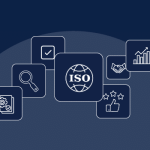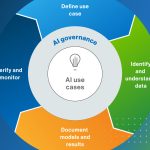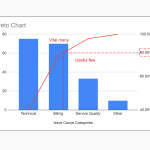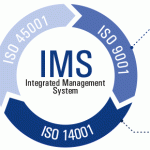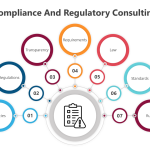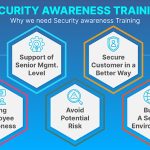The ISO 27001 Statement of Applicability (SoA) is a key document that outlines which of the 93 Annex A controls apply to your organization and why. It defines the scope of your information security management system (ISMS), helps set priorities for implementation, and provides a framework for internal and external audits. The SoA ensures your approach to information security … [Read more...] about How to Write an ISO 27001 Statement of Applicability
Cybersecurity & Data Protection Assessment Standards (CDPAS) to standardize third-party assessments for cybersecurity
The Cybersecurity & Data Protection Assessment Standards (CDPAS), created by the SCF Council, aim to provide a unified and consistent framework for conducting third-party assessments, attestation, and certification services in cybersecurity and data protection. These standards address the fragmented approaches currently used, ensuring assessments meet predefined quality and … [Read more...] about Cybersecurity & Data Protection Assessment Standards (CDPAS) to standardize third-party assessments for cybersecurity
Generative AI and IT Governance: Friends or Foes? Navigating the Future of Generative AI and Information Governance
Generative AI’s transformative potential will depend on how organizations integrate information governance into their operations. Governance frameworks will address risks like bias, data misuse, and regulatory challenges while ensuring compliance, ethical practices, and trust. Ethical AI will become a necessity, requiring audits for fairness, transparency protocols, and … [Read more...] about Generative AI and IT Governance: Friends or Foes? Navigating the Future of Generative AI and Information Governance
Quality Management Certification Exam Success From Thinking Slow Quickly
Certification exams test not only a candidate's knowledge but their ability to apply it effectively under pressure. To excel, individuals must blend rapid factual recall with careful deliberation. This requires mastering core terms, concepts, and practical applications through consistent, immersive study rather than relying on shortcuts or "guaranteed pass" … [Read more...] about Quality Management Certification Exam Success From Thinking Slow Quickly
What is In-Process Inspection: Procedure, Stages, Types and Applications
In-process inspection is a proactive manufacturing strategy that involves checking product quality at various stages of production. By identifying and addressing defects early, it reduces waste, enhances product integrity, and improves efficiency. Critical inspection points include raw material verification, dimensional accuracy during production, and pre-packaging quality … [Read more...] about What is In-Process Inspection: Procedure, Stages, Types and Applications
Using Pareto Analysis to Boost Efficiency
Pareto analysis, derived from the 80/20 rule, enables project managers to focus on the 20% of tasks that deliver 80% of the value, enhancing efficiency and productivity. This approach helps teams identify and address the root causes of issues, providing a clear roadmap for prioritizing impactful tasks. By organizing issues into categories, scoring their significance, and … [Read more...] about Using Pareto Analysis to Boost Efficiency
Driving Quality Control Excellence with MOM Integration
Integrating MOM with QMS enhances quality control by providing real-time visibility into production processes, automating quality checks, and streamlining compliance reporting. Unlike Manufacturing Execution Systems (MES), MOM offers a broader scope, incorporating production monitoring, maintenance, logistics, and quality management into a unified system. This integration … [Read more...] about Driving Quality Control Excellence with MOM Integration
Transforming Defect Detection and Root Cause Analysis with GenAI
Generative AI transforms quality control in manufacturing by enabling continuous defect detection and RCA. Unlike traditional vision AI, which excels in visual anomaly detection, genAI leverages advanced learning, contextual understanding, and data analysis to predict and prevent defects. By analyzing diverse data streams and adapting to changing conditions, genAI can identify … [Read more...] about Transforming Defect Detection and Root Cause Analysis with GenAI
Free Resource: All Six Sigma Tools for Quality Management
Six Sigma tools are pivotal in improving business processes, identifying inefficiencies, and ensuring quality management. These tools cater to various needs, from root cause analysis to decision-making and strategic planning. Tools like the 5 Whys and Pareto Analysis are popular due to their simplicity and effectiveness in identifying primary causes of issues. Advanced … [Read more...] about Free Resource: All Six Sigma Tools for Quality Management
20 Best Quality Management Certifications That Pay Well in 2025
Quality management certifications can equip professionals with essential skills to effectively manage and improve quality processes. These credentials can demonstrate expertise in quality standards, boost career prospects, and support organizations in achieving operational excellence. Certifications such as Certified Manager of Quality/Organizational Excellence (CMQ/OE), Six … [Read more...] about 20 Best Quality Management Certifications That Pay Well in 2025
An In-Depth Look at Committee Draft 2 (CD2) of ISO 9001:2026
The Committee Draft 2 of ISO 9001:2026 retains much of the structure and content from the 2015 version, with few significant changes. Key updates include additional guidance in the annexes, some of which critics argue are unhelpful or contradictory. The annexes include suggestions, such as conducting SWOT analyses, but these optional elements could lead to confusion if … [Read more...] about An In-Depth Look at Committee Draft 2 (CD2) of ISO 9001:2026
Sustainability and Technology are Shaping the Next ISO 9001 Update
The 2026 ISO 9001 revision signals a transformative shift in quality management by integrating Industry 4.0 technologies, such as AI and IoT, into standard practices. This update reflects the growing importance of digital transformation and aims to modernize quality systems to enhance efficiency and responsiveness. Concurrently, sustainability has moved from an optional … [Read more...] about Sustainability and Technology are Shaping the Next ISO 9001 Update
A Single Quality Principle for Value and Balance
The quality profession must evolve to meet modern industry demands by embracing a unifying principle grounded in "value and balance." Value is the ratio of utility produced to resources consumed, highlighting the need to eliminate waste and maximize efficiency. This approach extends beyond traditional quality definitions, like fitness for use or conformance to requirements, … [Read more...] about A Single Quality Principle for Value and Balance
What Types Of Product Testing Labs Are There?
This podcast focuses on the nuances of selecting and working with different types of testing labs—calibration, compliance, and reliability labs. Calibration labs ensure measurement tools and equipment meet precise standards, which is critical for maintaining product quality. Compliance labs focus on meeting regulatory and legal requirements for various markets, often involving … [Read more...] about What Types Of Product Testing Labs Are There?
The Concept of Zero Defects in Quality Management
The Zero Defects philosophy, introduced by Philip Crosby, advocates minimizing defects and waste to achieve high-quality standards in processes and products. Though it is often misconstrued as striving for literal perfection, Zero Defects is better understood as a mindset of continuous improvement and achieving acceptable quality standards under even stringent metrics. Six … [Read more...] about The Concept of Zero Defects in Quality Management
How Integrated Management Systems Can Improve Quality Management
Integrated Management Systems (IMS) offer organizations a cohesive approach to managing diverse operational areas such as quality, environmental impact, and health and safety. By combining frameworks like ISO 9001, ISO 14001, and ISO 45001 into a single system, IMS reduces the inefficiencies associated with maintaining stand-alone systems. This integrated approach minimizes … [Read more...] about How Integrated Management Systems Can Improve Quality Management
Why AI Falls Short in Regulatory Consulting
AI is transforming industries by automating tasks and analyzing data rapidly, but its limitations have become evident in regulatory consulting. This field requires a deep understanding of complex, evolving regulations and jurisdiction-specific nuances, which AI struggles to provide. Regulatory consulting often demands interpreting the intent behind laws, tailoring solutions to … [Read more...] about Why AI Falls Short in Regulatory Consulting
Real Life Examples of Quality Management Systems That Worked
Quality management has been a transformative force in many industries, with Toyota, Motorola, Ford, Xerox, and Ritz-Carlton providing compelling examples of its effectiveness. Toyota’s Lean Manufacturing System revolutionized production processes by reducing waste and focusing on continuous improvement. Techniques like Just-In-Time production and automation with a human touch … [Read more...] about Real Life Examples of Quality Management Systems That Worked
The Top 10 Security Awareness Training Solutions For Business
Security Awareness Training (SAT) platforms are crucial in equipping employees with the knowledge and tools to counteract cyber threats such as phishing and weak passwords. These platforms offer interactive training materials, quizzes, and simulations to encourage security-conscious behavior and test users' abilities to recognize malicious activities. Simulated phishing … [Read more...] about The Top 10 Security Awareness Training Solutions For Business
What is privileged access management (PAM) and why is it important?
Privileged Access Management (PAM) is a cybersecurity strategy designed to manage and secure elevated access to critical IT resources. It controls who can access sensitive systems, accounts, and credentials and monitors their activities to reduce security risks. Privileged access, a key focus of PAM, allows specific users—such as system administrators or contractors—to perform … [Read more...] about What is privileged access management (PAM) and why is it important?


